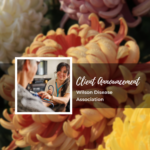Our fifth and most recent Leadership Matters roundtable provided the chance to talk with three fascinating individuals, each of whom took over the helm of their organization during COVID or just before it struck.
These leaders were Cynthia Figueroa, of JEVS Human Services, which serves 35,000 Philadelphia-area residents each year; Dr. Beth Reaves, of the Washington School for Girls, an all-scholarship, tuition-free institution dedicated to expanding access to quality education; and George Matysik, of the Share Food Program, the leading food bank in Philadelphia and force for innovation in the fight for food equity.
Talking with three new nonprofit leaders of this caliber would yield fascinating insights even in ordinary times; speaking with these inspiring leaders who happened to face the biggest leadership challenge of their lives so close to their first day on the job proved even more interesting.
Cynthia spoke of the challenges of leading a team that had experienced “two years of 24-hour adrenaline.” Beth talked about shelving her school’s new strategic plan when the pandemic struck and going off-script: “There’s no binder to pull off the shelf for this kind of crisis.” And George related his team’s experience moving mountains to instantly launch a home delivery service that had been planned for years and multiply the volume of food Share provided to people in need.
With each story our guests recounted, I found myself not only impressed, but also reminded of the experiences shared during our four previous Leadership Matters events. We’ve now had the privilege to hear from leaders ranging from the president of a major zoo to the leader of a respected community foundation, from the head of an NGO working internationally for peace and economic justice to the head of a cultural institution delivering live programming to an audience of 100,000 people each summer. (You can revisit videos of all these Leadership Matters conversation here.)
As someone who has spent his entire career working to advance the mission of various nonprofits, my overwhelming take-away from these five roundtable conversations to date has been a powerful feeling of pride in all our nonprofit organizations and the sector as a whole.
I have seen more clearly than ever the impact nonprofits have in our society and the absolutely essential role they fill. I have seen that stories of heroic commitment and exceptional dedication are in fact not exceptional, but reveal qualities that people across the sector have demonstrated consistently. And—through these Leadership Matters conversations spanning the pandemic—I have seen that the worst of times have, again and again, brought out the best in our people. This was certainly true of our three CEOs and the organizations they represent.
In becoming CEO at JEVS, Cynthia became the first woman to lead the organization in its 80-year history, the first member of a minority, and the first non-Jewish leader—a “three-for,” as she says, that was “amazing and awesome, but that also came with a tremendous amount of responsibility, pressure, and expectations.” Cynthia embraced the CEO’s role as “as the organization’s greatest cheerleader,” while committing to solving complex and critical programs as efficiently as possible in order to sustain JEVS life-changing work. Ranging from workforce development to behavioral health, this work, as she explains, focuses on removing barriers that stand in people’s way, helping them achieve greater independence and a better quality of life, and ultimately addressing poverty at its root.
At Washington School for Girls, Beth took over as president following in the footsteps of a legacy leader, the school’s much beloved founding head—as Beth heard more than once, “big shoes to fill.” She started her tenure with an inclusive listening tour in preparation for developing a new strategic plan. Then, in March 2020, Beth’s leadership journey took a sudden turn, and the plan had to be set aside. With about two weeks’ notice, Beth’s team had to make sure all WSG’s students had the technology they’d need for remote learning, plus hot spots for wi-fi connectivity, plus noise-cancelling headphones for the many girls who had no quiet space at home to learn. “We had to do whatever it took for the girls to engage with us every single day,” Beth explains. “Not only did I not have all the answers, sometimes I felt like I didn’t have any answers.” However, learning from mistakes long the way, the WSG team pulled off the pivot to virtual instruction. Then, by fall 2021, WSG was back on campus and, in fact, was able to serve students in person through the entire school year.
Like Beth, George followed a highly respected and dynamic leader who had been at Share for decades. In fact, his first reaction on learning of her retirement was to say, “God bless the person who tries to fill her shoes. I wouldn’t want to be him.” Yet weeks later, George found himself in the role, heading an organization “critical to the infrastructure of the city.” Then, one year later, as he was just starting to feel comfortable in his role, the reality of covid hit with full force. Immediately George and his team were working with city officials to plan a food relief response. That response included setting up a warehouse in a matter of days to pack and deliver 32,000 boxes of food each week to people in need—in addition to Share’s ongoing operations. “I believe in the idea that you should let no crisis go to waste,” George says. “This was an opportunity to look at the hunger relief and anti-poverty infrastructure, ask how we got here, and take some really bold steps to change things.”
As it happens, one of George’s key collaborators in this endeavor was Cynthia Figueroa, before she joined JEVS and was still serving as a deputy mayor in Philadelphia. Their experience proved the power of partnerships across sectors and the absolutely essential role of nonprofits. As Cynthia says, “In this city, services are developed and delivered by nonprofits. Those nonprofits are so critical. They are where the work happens.”
In the past two years and counting, I have heard dozens and dozens of stories of how that work happens. They are stories of responsiveness, resourcefulness, and impact.
My call to the leadership of nonprofit organizations reading this message is to redouble their efforts to tell those stories and tell them well. I say this as a fundraiser who knows that this is how we carry out the essential work of stewardship and cultivation. I also say it as an impassioned champion of the nonprofit sector. The missions our organizations fulfill are essential. By inspiring more and more people to become partners in those missions, we can do a world of good.
I hope you will join me in spreading the great news of all that nonprofits accomplish—an in enjoying our next Leadership Matters discussion. Plans are in the works now!




